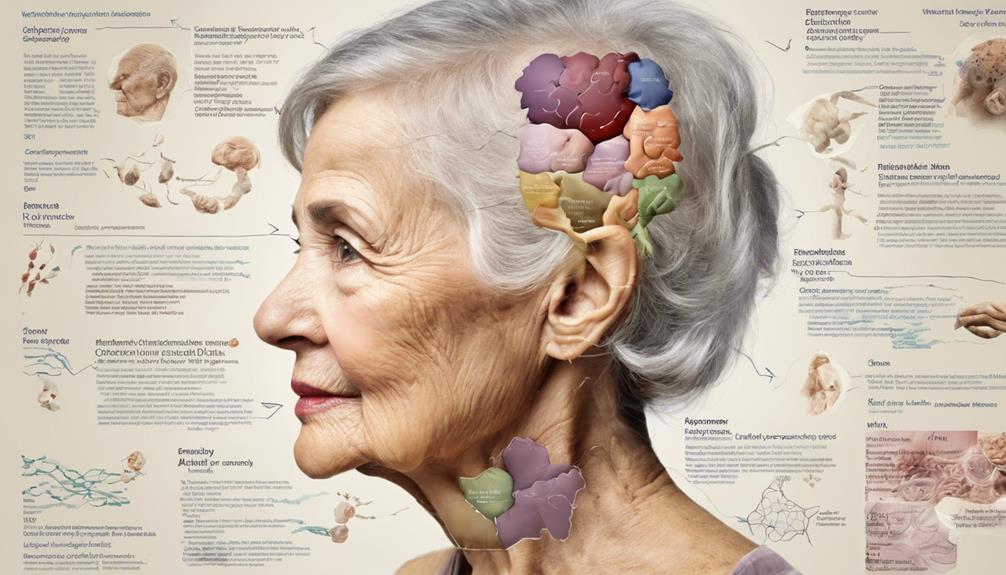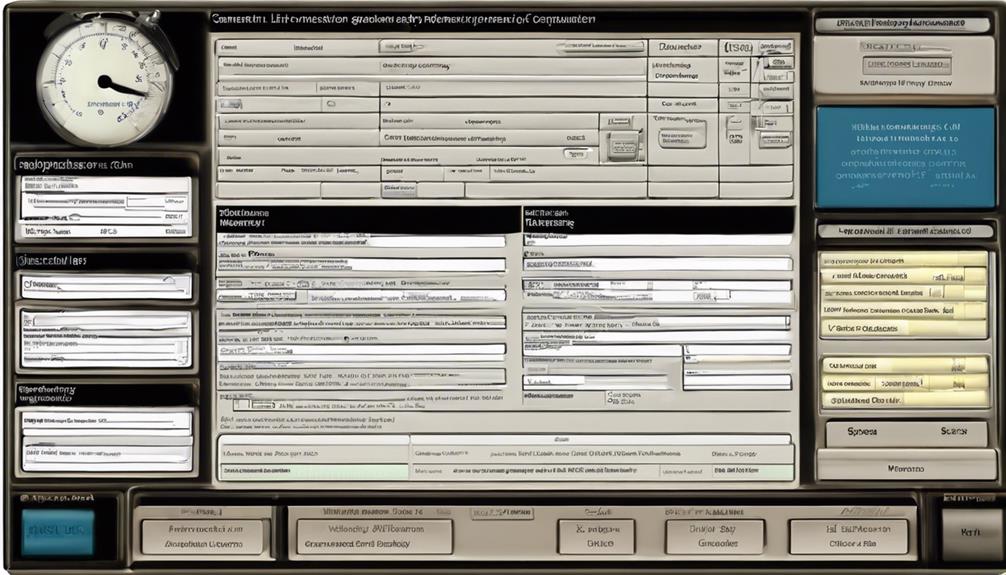We acknowledge that there might be uncertainties regarding the accuracy of predicting life expectancy. Nevertheless, thanks to advancements in medical research and data analysis, the Dementia Life Expectancy Calculator provides a fresh outlook on potential future health outcomes.
Curious about how this tool can provide insights into your potential journey with dementia? Let's explore together how utilizing this calculator could offer valuable insights and assist in making informed decisions for the road ahead.
Understanding Dementia Life Expectancy
Understanding the life expectancy implications of dementia requires a nuanced grasp of the disease's progression and individual factors that influence outcomes. When dementia, including Alzheimer's, is diagnosed, it can significantly impact life expectancy. On average, individuals with Alzheimer's live around 8 to 12 years post-diagnosis, but this can vary based on several factors. Cognitive function plays a crucial role in determining how the disease will progress and ultimately affect life expectancy. Additionally, other health conditions that may accompany dementia can further complicate the situation.
Diagnosing dementia early is key to effective disease management and care planning. While treatments focus on symptom management and improving quality of life rather than extending life significantly, understanding the disease's trajectory and individual health conditions can help in making informed decisions about care needs and planning for the future. By considering these factors, individuals and their caregivers can better navigate the challenges that come with dementia and work towards optimizing the quality of life for those affected.
Factors Influencing Life Expectancy

Upon diagnosis, various factors such as gender, age, symptom severity, overall health, and cognitive function converge to influence the life expectancy of individuals with dementia. When considering these factors, it becomes evident how each plays a crucial role in determining the longevity of a person with dementia:
- Gender Differences: Women generally have a longer life expectancy compared to men, influencing how long individuals with dementia may live.
- Age at Diagnosis: The age at which dementia is diagnosed can significantly impact life expectancy, with earlier onset often associated with a faster decline.
- Cognitive Function: The level of cognitive function at diagnosis is a key determinant of life expectancy, as it affects the individual's ability to carry out daily activities and make decisions.
- Health Problems: The presence of other health issues alongside dementia, such as cardiovascular conditions or diabetes, can further complicate the picture and affect life expectancy.
Understanding these factors can help caregivers and healthcare providers tailor appropriate support and care plans to enhance the quality of life for individuals living with dementia.
How the Calculator Works
The Dementia Life Expectancy Calculator operates by analyzing the user's MMSE score to estimate the time until nursing home care and death for individuals with Alzheimer's and similar demographics. By inputting the MMSE score, the calculator can provide an estimate in months until these specific events occur. The tool's accuracy heavily relies on the user-provided MMSE score and data related to Alzheimer's Disease. While the current focus is on Alzheimer's, there are plans to broaden its coverage to encompass other forms of dementia for wider relevance.
It's crucial for users to grasp the tool's limitations and understand that it should be used with caution, as it draws on statistical data and information provided by the user. Being aware of these constraints can help manage expectations and ensure that the results are interpreted appropriately. As with any predictive tool, the dementia life expectancy calculator serves as a guide and shouldn't be the sole basis for decision-making in matters concerning healthcare and well-being.
Using the Calculator Effectively

To effectively utilize the Dementia Life Expectancy Calculator, one must ensure they input their Mini-Mental State Exam (MMSE) score accurately. Here are some tips for using the calculator effectively:
- Obtaining MMSE Score: Before using the calculator, make sure to obtain your MMSE score. You can find online tests or download one to assess your cognitive function accurately.
- Dedicate Time: Allocating about 15 minutes for the process of inputting your MMSE score and obtaining the results can help ensure you're thorough and accurate.
- Importance of Accuracy: The accuracy of the results provided by the calculator heavily relies on the correct input of your MMSE score. Double-checking this information is crucial for reliable estimations.
- Understanding Results: The tool offers estimates for Time Until Nursing Home Care and Time Until Death based on your MMSE score. Take the time to comprehend and reflect on these projections to better plan for the future.
Planning for the Future
As we navigate the complexities of dementia care, understanding and planning for the future becomes a crucial aspect of providing the best support and quality of life for our loved ones. When considering the progression of dementia, factors such as cognitive function, health conditions, and disease stages play a significant role in estimating life expectancy and planning ahead effectively.
| Key Considerations | Impact on Planning for the Future |
|---|---|
| Age at Diagnosis | Influences the timeline for care needs and financial planning |
| Cognitive Function | Determines the level of support required and potential care options |
| Other Health Conditions | Affects overall health management and type of care necessary |
| Disease Progression Stages | Guides decisions on care settings and end-of-life arrangements |
| Individual Factors | Personalized approach to care, considering unique needs and preferences |
Understanding the dynamics of dementia, including utilizing tools like the Alzheimer's Life Expectancy Calculator, empowers caregivers to make informed decisions regarding financial planning, estate arrangements, and the type of care needed to ensure the well-being of their loved ones throughout the progression of the disease.
Frequently Asked Questions
What Is the Average Age of Death for Someone With Dementia?
We've researched and found that the average age of death for someone with dementia varies depending on the type of dementia.
Alzheimer's disease patients typically live for about 8 to 12 years post-diagnosis, while vascular dementia may lead to an average life expectancy of around 5 years post-diagnosis.
Lewy body dementia patients may survive an additional 6 to 12 years after diagnosis, and frontotemporal dementia is associated with an average life expectancy of approximately 8 years post-diagnosis.
How Can You Tell What Stage of Dementia a Person Is In?
We can determine the stage of dementia in a person by assessing their cognitive and functional capabilities. Healthcare professionals use tools like the Global Deterioration Scale (GDS) and the Functional Assessment Staging (FAST) scale to categorize individuals into specific dementia stages.
Behavioral changes, memory loss, and daily living challenges are key indicators of the progression of dementia stages, ranging from mild cognitive impairment to severe dementia impacting daily activities and communication.
Does a Person With Dementia Know They Are Confused?
We understand that individuals with dementia may not always realize their confusion due to cognitive challenges affecting self-awareness. It's common for them to lack insight into their cognitive decline, with conditions like anosognosia further complicating matters.
Family and caregivers often observe the memory issues more than those with dementia do themselves. Recognizing this lack of awareness is crucial for providing the necessary care and support.
When Is It Time to Put a Dementia Patient in a Home?
When it's time to consider moving a dementia patient to a nursing home, signs like behavioral changes, wandering, and caregiver burnout may indicate the need for more specialized care.
Consulting with healthcare providers, social workers, and family members can help make this important decision.
Prioritizing the safety, well-being, and quality of life of the individual is crucial in determining the right time for this transition.
Conclusion
In conclusion, the Dementia Life Expectancy Calculator is a powerful tool for individuals to plan for their future and make informed decisions about their care.
For example, Sarah, a 65-year-old woman with diabetes, used the calculator to estimate her life expectancy and decided to increase her physical activities to improve her health.
By understanding the factors influencing life expectancy and utilizing this tool effectively, individuals can take proactive steps towards a better quality of life.









